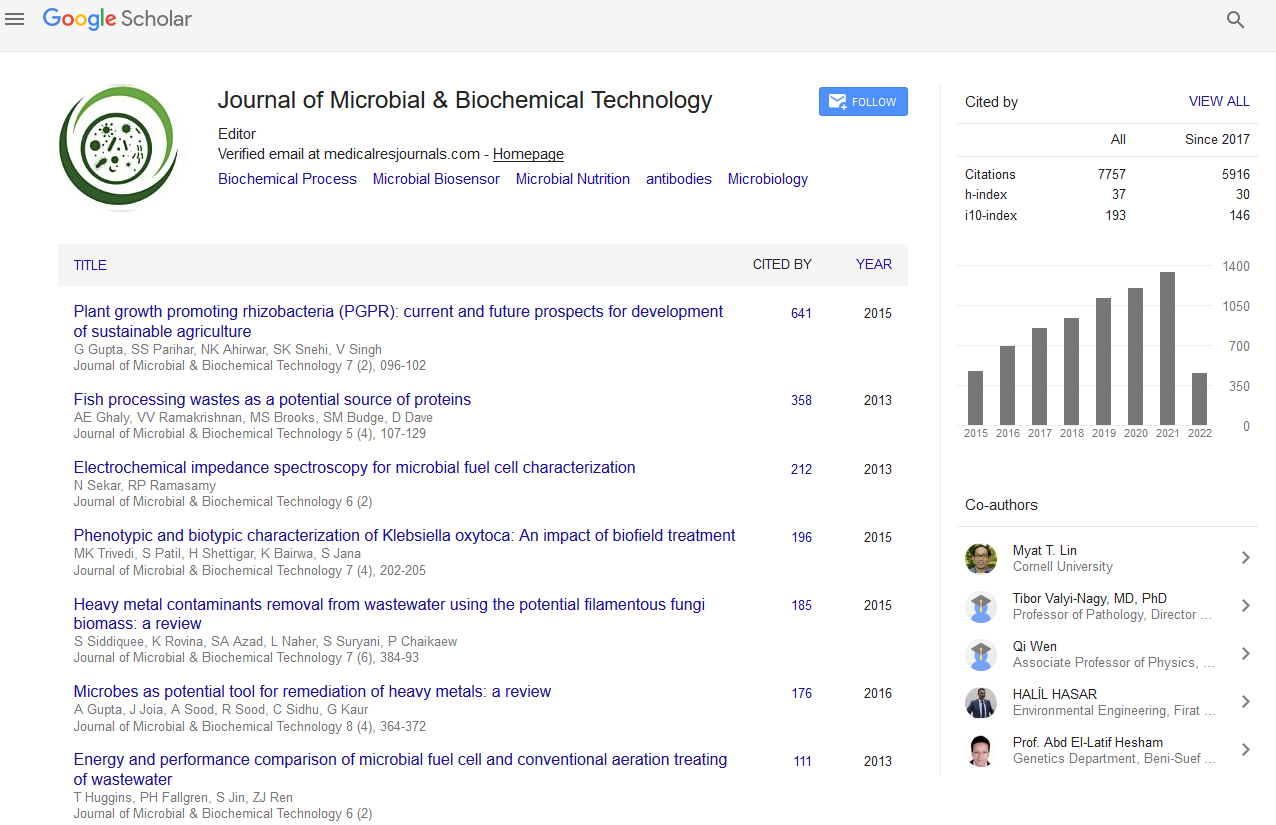PMC/PubMed Indexed Articles
Indexed In
- Academic Journals Database
- Genamics JournalSeek
- Academic Keys
- JournalTOCs
- China National Knowledge Infrastructure (CNKI)
- Scimago
- Access to Global Online Research in Agriculture (AGORA)
- Electronic Journals Library
- RefSeek
- Directory of Research Journal Indexing (DRJI)
- Hamdard University
- EBSCO A-Z
- OCLC- WorldCat
- SWB online catalog
- Virtual Library of Biology (vifabio)
- Publons
- MIAR
- University Grants Commission
- Geneva Foundation for Medical Education and Research
- Euro Pub
- Google Scholar
Useful Links
Share This Page
Journal Flyer

Open Access Journals
- Agri and Aquaculture
- Biochemistry
- Bioinformatics & Systems Biology
- Business & Management
- Chemistry
- Clinical Sciences
- Engineering
- Food & Nutrition
- General Science
- Genetics & Molecular Biology
- Immunology & Microbiology
- Medical Sciences
- Neuroscience & Psychology
- Nursing & Health Care
- Pharmaceutical Sciences
Abstract
Biodesulfurization of Dibenzothiophene by Two Bacterial Strains in Cooperation with Fe3O4, ZnO and CuO Nanoparticles
Rahpeyma SS, Mohammadi M and Raheb J
Fossil fuels contain a considerable amount of sulphur which after burning will have negative effects such as generating acid rain in the environment. Biodesulfurization is assumed to be a promising process for desulfurization due to no need for extreme conditions and furthermore breaking the C-S bond by microorganisms without destruction of the heterocyclic structure, through a pathway called 4S. In this study dibenzothiophene (DBT), as a model target compound was applied for sulfur removal by a cooperative system of two bacterial strains; Rhodococcus erythropolis IGTS8 and Pseudomonas aeruginosa PTSOX4, and Fe3O4, ZnO and CuO nanoparticles. Results of spectrophotometry and further HPLC analysis demonstrated that addition of the ZnO nanoparticles into the microbial culture, significantly resulted in the increment of desulfurization rate and conversion of DBT to 2-hydroxybiphenyl. The maximum value of almost 1.4 fold improvement in biodesulfurization activity was obtained for P. aeroginusa PTSOX4 in the presence of ZnO nanoparticles.


